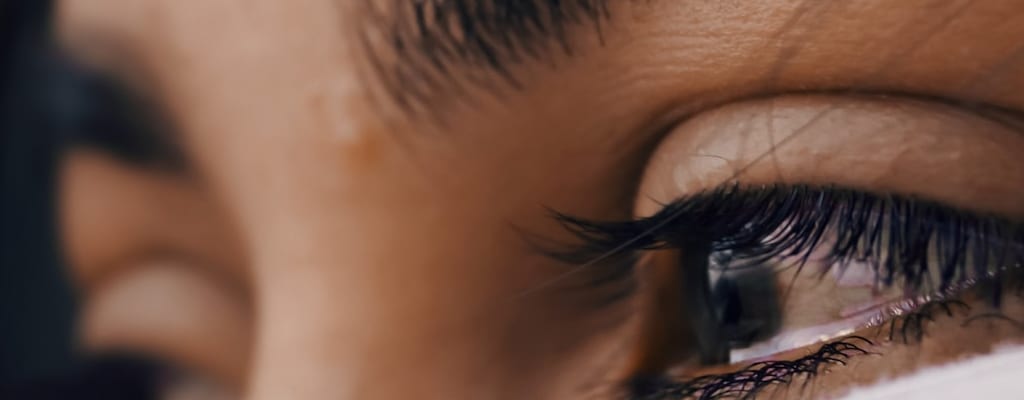get one’s hopes up: Idiom Meaning and Origin
What does ‘get one's hopes up’ mean?
Idiom: get one's hopes up
Meaning: To become optimistic or expectant about something, often to later be disappointed when it doesn't happen as anticipated.

Idiom Explorer
An idiom meaning an unrealistic or unattainable desire/expectation, often used to convey someone wanting something that is impossible to obtain.
According to my extensive research and knowledge about idioms, I have gathered several facts regarding the idiom "the moon on a stick." Here are the key facts:
The idiom "keep one's fingers crossed" means to hope for good luck or success. It is often used when someone is wishing for a positive outcome or outcome of an event.
The idiom "get one's foot in the door" means to establish a small opportunity or gain initial access to a job or a new opportunity, which may eventually lead to further success or advancements.
The idiom "get one's fingers burnt" means to suffer negative consequences or experience a setback due to one's own actions or decisions. It implies getting physically or metaphorically hurt or harmed as a result of taking a risk or involving oneself in a dangerous or risky situation.
The idiom "get one's feet wet" means to start doing something new or unfamiliar, typically in a cautious or hesitant way.
The idiom "get one's claws into" means to gain a strong hold or control over someone or something, often in a possessive or manipulative way.
The idiom "get one's act together" means to organize oneself, make a plan, and start behaving or performing in a more efficient and effective way.
The idiom get one's act together is widely used in English and encourages someone to organize themselves or improve their behavior. It originated in the theater, where an "act" referred to a portion of a performance. To get one's act together meant to be fully prepared for the show.
The idiom "get ahead of oneself" means to anticipate or plan for a future event before the appropriate time, often resulting in excessive excitement or overconfidence. It implies acting prematurely or making assumptions without waiting for all the necessary information.
The idiom "five will get you ten" suggests a strong probability or certainty that a particular outcome will occur. It implies that if something is highly likely to happen, it can be predicted with confidence.
The idiom "fancy one's chances" means to believe or have confidence in one's likelihood of success in a particular situation or endeavor.
Raising Expectations
The idiom "get one's hopes up" is a common expression in English. It's used to describe situations where someone becomes optimistic or excited about an outcome or possibility. This phrase implies that someone has elevated expectations and is anticipating a positive result. When someone's hopes are raised, there is a risk of disappointment or letdown if the desired outcome doesn't happen.
The origins of this idiom date back to the early 19th century. In this context, the word "hope" refers to a feeling of expectation and desire for something to happen. "Get one's hopes up" emphasizes the action of raising one's hopes, suggesting some level of control over one's emotions. This idiom is commonly used in casual conversations as well as formal settings.
One interpretation of this idiom is that it reflects the human tendency to imagine positive outcomes and emotionally invest in the possibilities of a desired result. When someone gets their hopes up, it indicates a level of emotional investment and anticipation, which can make eventual disappointment more profound. However, this idiom also highlights the importance of optimism and hope in our lives. It's natural and even necessary to have high expectations at times.
It's important to note that "get one's hopes up" is often used in a cautionary context. It suggests that while hope and optimism are positive qualities, they should be balanced with a certain degree of realism. Getting one's hopes up can lead to disappointment and disillusionment if the anticipated outcome doesn't happen. This idiom serves as a reminder to temper expectations and be prepared for potential setbacks.
The idiom "get one's hopes up" is related to several other idioms, such as "keep one's fingers crossed", "fancy one's chances", "the moon on a stick", and "don't hold your breath". These idioms share a common theme of anticipation and the uncertain outcome of a desired result. While they have different nuances, they all convey the idea that the outcome may not be as expected or desired.
When we say "keep one's fingers crossed", we mean that someone is hoping for a positive outcome but acknowledges that there's a possibility it may not happen. This idiom suggests that one is hopeful and optimistic, yet aware of the uncertainty involved.
"Fancy one's chances" is another idiom related to "get one's hopes up". It implies that someone believes they have a good chance of success or achieving a desired outcome. However, it also acknowledges that there's a level of uncertainty and the outcome may not be as certain as one hopes.
"The moon on a stick" is a metaphorical idiom that conveys the idea of wanting everything or an unrealistic and impractical outcome. It's often used to describe situations where someone's expectations are unreasonably high or unrealistic. This idiom serves as a reminder that it's important to have realistic expectations and not expect everything to be perfect or exactly as desired.
Lastly, "don't hold your breath" is an idiom that suggests one shouldn't count on a particular outcome or expect it to happen soon. It conveys a somewhat skeptical or pessimistic tone, implying that the desired result is unlikely or may take a long time to materialize. This idiom serves as a warning not to get one's hopes up too high or to expect immediate results.
The idiom "get one's hopes up" reflects the human experience of optimism and anticipation. It conveys the idea that raising one's hopes can lead to a sense of excitement and possibility, but also carries the risk of disappointment. This idiom reminds us to balance hope with realism and be prepared for potential setbacks. In relation to other idioms like "keep one's fingers crossed", "fancy one's chances", "the moon on a stick", and "don't hold your breath", they all share the common thread of uncertainty and the possibility that the outcome may not be as expected or desired.
Example usage
Examples:
1. I don't want to get my hopes up, but I think I have a good chance of getting the job.
2. The weather forecast said it might snow tomorrow, but I'm not getting my hopes up because they've been wrong before.
3. She told me she would call me tonight, but I'm not getting my hopes up. I've learned not to expect too much.
More "Expectation" idioms

